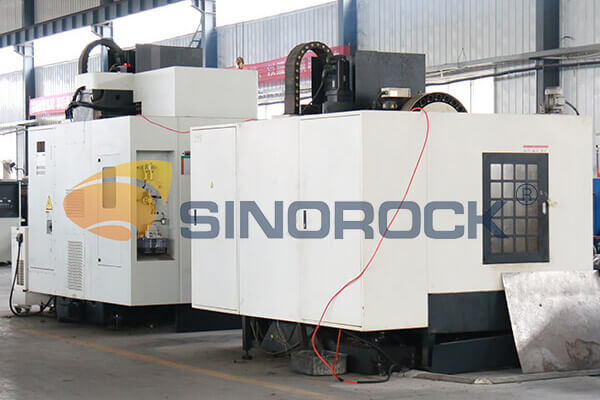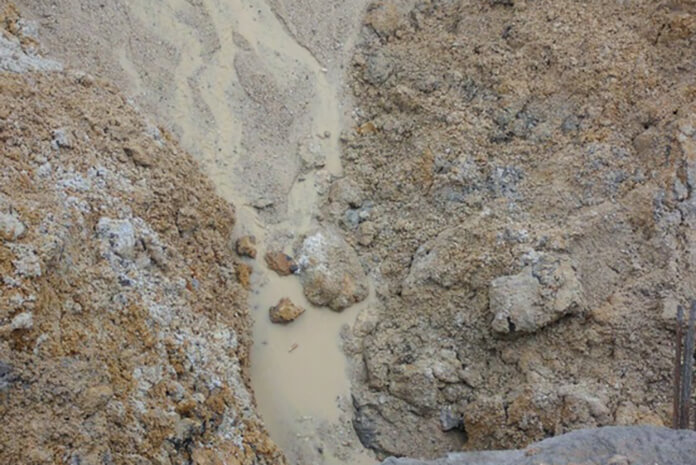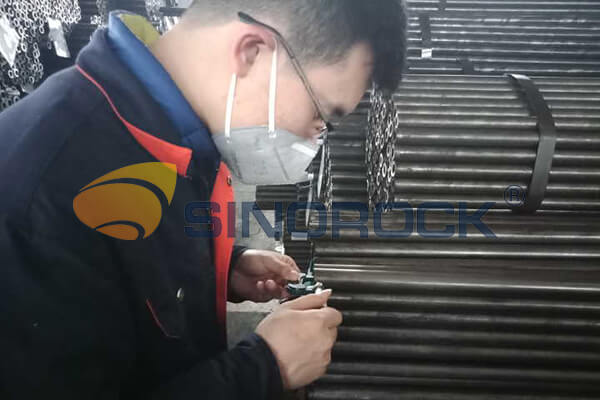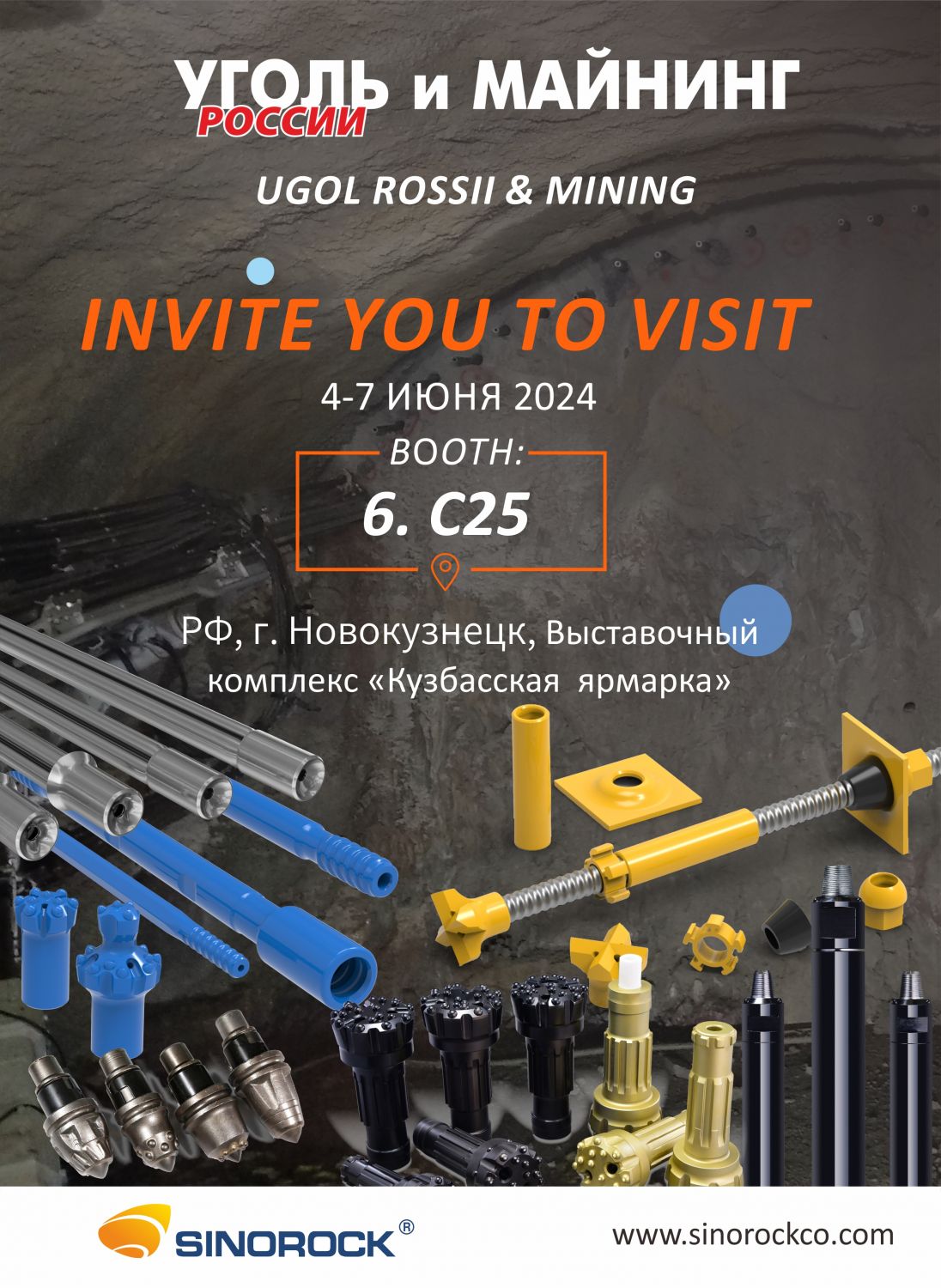3 Crucial Factors That Impact the Quality of Self-Drilling Hollow Bolts
Time:2025-01-26From:sinorock View:
In geotechnical engineering and tunneling, self-drilling hollow bolts are integral to supporting underground structures and ensuring the stability of tunnels, mines, and other deep-earth constructions. The quality of these bolts directly influences the safety, durability, and efficiency of the entire project. When their quality is compromised, it can result in costly repairs, project delays, and, more importantly, potential hazards. So, what factors affect the quality of self-drilling hollow bolts? Let's dive deeper into the three critical aspects that determine the integrity of these bolts: raw materials, processing technology, and packaging and transportation.
1. Raw Materials: The Foundation of Quality
The raw materials used in the production of self-drilling hollow bolts play a significant role in determining their overall quality. From the selection of the steel to its mechanical properties and production process, each element of the raw material can affect the strength, durability, and overall performance of the bolts in the field.

a. Size and Specifications of Raw Materials
Self-drilling hollow bolts are primarily made from cold-rolled or hot-rolled seamless steel pipes, and the quality of these raw materials directly impacts the dimensions and performance of the final product. For instance, if the original seamless steel pipe is not manufactured to the required specifications, the resulting bolt will deviate from the desired size. This misalignment can lead to various complications, such as difficulty in assembling the bolts with other components like drill bits and connecting sleeves.
Inadequate sizing can also introduce structural weaknesses into the bolt, reducing its ability to handle load-bearing and stress resistance. For geotechnical engineers, using incorrectly sized bolts can lead to structural failures and unsafe working conditions. Therefore, stringent quality control at the raw material stage ensures that each bolt meets the required standards for precise dimensions and compatibility.
b. Mechanical Properties of Raw Materials
The mechanical properties of the raw steel used in self-drilling hollow bolts are fundamental to the bolt’s performance. The three primary mechanical properties that must be considered are tensile strength, yield strength, and ductility.
- Tensile Strength refers to the maximum stress the material can withstand without breaking.
- Yield Strength is the point at which the material starts to deform plastically.
- Ductility is the ability of the material to undergo significant deformation before failure.
For instance, the tensile strength and yield force of R32 self-drilling hollow bolts, as produced by Sinorock, are typically 280 kN and 230 kN, respectively. If the raw steel does not meet these specifications, the bolts may fail during installation or under operational stress, leading to potential structural issues in tunnels, mining operations, or other projects.
Additionally, raw materials that lack proper ductility may be more prone to brittle failure under extreme stress. Therefore, it is crucial to use high-quality steel that meets these mechanical standards to ensure the safety and reliability of the final product.
c. Raw Material Production Process
The process by which raw materials are produced also affects the quality of the steel used in self-drilling hollow bolts. Factors such as the method of steel production, heat treatment, and cooling processes can influence the material’s microstructure and mechanical properties. Variations in these production methods can result in inconsistencies in the steel’s strength, flexibility, and overall durability.
Advanced steel mills and manufacturers use stringent quality controls during production, including tests for hardness, tensile strength, and other properties. As a result, self-drilling hollow bolts made from these high-quality steels are more reliable, offering better resistance to stress, corrosion, and wear during their service life.
2. Processing Technology: Precision in Every Step
Once the raw materials are selected, the processing and manufacturing stages are crucial for ensuring that self-drilling hollow bolts meet the necessary standards for performance and durability. The processing technology used during production involves several stages, each with its own potential for introducing errors that could impact the final quality.
a. Manufacturing Steps and Their Impact on Quality
The process of manufacturing self-drilling hollow bolts includes a variety of steps that require high precision:
- Rolling: The seamless steel pipes are rolled into bolts with continuous threads on the surface. This step must be done according to precise specifications to ensure the threads are uniform and fit properly with other components.
- Sawing: The bolts are cut to the required lengths, either to standard or customer-specific specifications. A slight mistake in cutting can lead to bolts that are too short or too long, causing issues during installation.
- Chamfering: The bolt ends are chamfered (angled) to facilitate smooth insertion into drilling equipment. Incorrect chamfering can lead to improper installation and difficulty during the bolting process.
- Straightening: The bolts must be straightened to ensure they align correctly during installation. Even a minor bend can cause issues during assembly, affecting the bolt’s performance under load.
- Spray Coding: A traceability code is sprayed on the surface of each bolt to ensure it can be tracked throughout its lifecycle. This is important for quality assurance and to resolve any issues related to product failures.
- Rust Protection: After manufacturing, the bolts are often coated with anti-rust oil to prevent corrosion during storage and transportation.
- Deburring: The removal of burrs or rough edges ensures that the bolts are safe to handle and will not cause issues during installation.
Each of these steps must be carefully controlled to avoid defects. Even small errors in any of these processes can lead to bolts that are difficult to install, unsafe, or prone to premature failure. For example, poorly threaded bolts may not securely anchor to the surrounding rock, compromising the stability of the entire structure.
b. Equipment Performance and Precision
The equipment used in the manufacturing process is equally important. High-precision machinery is needed to ensure that each bolt is produced with the correct dimensions and mechanical properties. For instance, the accuracy of rolling machines, threading equipment, and straightening machines can significantly impact the overall quality of the product.
Any malfunction or misalignment in the equipment can result in bolts that are not uniform in size or shape. Therefore, maintaining and calibrating production equipment regularly is essential to ensure that self-drilling hollow bolts meet the necessary specifications.

c. Design Standards and Worker Skills
The design standards and the skills of the workers involved in the manufacturing process are also crucial for the quality of self-drilling hollow bolts. If the design standards are incorrect or outdated, the final product may not meet the necessary specifications for strength, durability, and compatibility with other components.
Furthermore, the expertise of the workers who operate the machinery and oversee the manufacturing process directly affects the quality of the bolts. Workers must be proficient in operating complex equipment and identifying any defects in the production process. Continuous training and experience play a significant role in ensuring that the bolts meet industry standards and customer expectations.
3. Packaging and Transportation: Protecting the Final Product
Once self-drilling hollow bolts are manufactured, they are ready for packaging and transportation. However, these final steps can also impact the quality of the bolts. Improper handling during shipping can result in physical damage to the bolts, affecting their ability to perform as expected.
a. Packaging Standards
Packaging is a critical aspect of preserving the integrity of self-drilling hollow bolts during transportation. Bolts must be securely packaged to prevent any physical damage that may occur during handling, loading, or unloading. For example, bolts should be carefully wrapped or placed in protective packaging that prevents direct contact with other materials that could cause scratching, denting, or corrosion.
In addition to protecting the bolts from physical damage, proper packaging also ensures that the bolts are not exposed to moisture or harsh weather conditions. If bolts are exposed to rain or humidity during transportation, they can begin to rust, which severely reduces their service life.
b. Shipping and Handling
During transportation, special care should be taken to avoid any rough handling or unnecessary movement that could lead to damage. For instance, if bolts are not properly secured in the shipment, they may collide with other items, leading to dents, scratches, or bends. Such damage may not only affect the appearance of the bolts but also compromise their structural integrity.
Additionally, exposure to moisture during transport can lead to rust, which will degrade the bolts’ strength and overall performance. Therefore, it is essential to ensure that self-drilling hollow bolts are transported in dry, controlled environments to maintain their quality and readiness for installation.
Conclusion
The quality of self-drilling hollow bolts is influenced by a multitude of factors, each of which contributes to the final product's performance and longevity. Raw material selection, processing technology, and packaging and transportation all play crucial roles in ensuring that the bolts meet the rigorous standards required for geotechnical engineering projects. By carefully controlling each step of the manufacturing and delivery process, manufacturers can deliver high-quality self-drilling hollow bolts that provide reliable performance and safety in demanding underground environments.
For engineers, construction managers, and contractors, understanding these key factors is essential for selecting and using self-drilling hollow bolts that meet project requirements and ensure structural integrity. By focusing on quality from start to finish, the safety and success of the project can be achieved.
latest news
-

- 3 Crucial Factors That Impact the Quality of Self-Drilling Hollow Bolts
- Time:2025-01-26From:This Site
- As we all know, the quality of the self-drilling hollow bolts is vital to the whole project. It determines if the project is safe for the people in future use. Then, what will affect the quality of the self-drilling hollow bolts?
- View details
-

- Self-Drilling Anchor Bolt Construction in Complex Geological Slope
- Time:2025-01-24From:This Site
- During construction, Self-drilling hollow anchor bolt integrates drilling, grouting and anchoring functions, which significantly improves drilling efficiency. And under the action of pressure pump, the grouting in the rock strata and voids is full, which ensures the grouting thickness and anchoring effect.
- View details
-

- How Does Self-drilling Rock Bolt Drill in Quicksand Geological Condition?
- Time:2025-01-19From:This Site
- This in-depth guide explores how self-drilling rock bolts function in quicksand geological conditions, covering the challenges, construction methods, and best practices for ensuring effective anchorage in unstable, fluidic soil layers.
- View details
-

- Quality Control: the Vital Factor of A SDA Bolt Factory
- Time:2025-01-09From:This Site
- Sinorock’s comprehensive quality control system, from supplier management to outgoing inspections, ensuring the highest standards for self-drilling anchor bolts in construction.
- View details
-
.png)
- International Women's Day with Strawberry-picking
- Time:2024-03-09From:This Site
- Marked the annual observance of International Women's Day, and to commemorate this significant event, Sinorock organized a special strawberry-picking event exclusively for its female employees.
- View details
-

- Celebrate the 74th anniversary of the founding of the People's Republic of China
- Time:2023-10-01From:This Site
- On October 1st every year, we observe the annual National Day, commemorating the birth of our beloved motherland.
- View details
-
.jpg)
- SINOROCK to Attend EXPOMINA PERÚ 2024 in Lima, Peru
- Time:2024-08-10From:This Site
- Sinorock to Attend EXPOMINA PERÚ 2024 in Lima, Peru
- View details
-
.jpg)
- SINOROCK to Participate in MINING AND METALS CENTRAL ASIA 2024
- Time:2024-08-08From:This Site
- SINOROCK to Participate in MINING AND METALS CENTRAL ASIA 2024
- View details
-

- SINOROCK Gears Up for UGOL ROSSII & MINING 2024 with Custom Mining Solutions
- Time:2024-05-15From:This Site
- SINOROCK is thrilled to announce its participation in the highly anticipated 32nd International Trade Fair for Mining Technology, UGOL ROSSII & MINING 2024. The event will take place at the Exhibition complex "Kuzbass Fair" in Novokuznetsk, Kemerovo region - Kuzbass, Russia, from June 4th to 7th, 2024.
- View details
 Download
Download 


